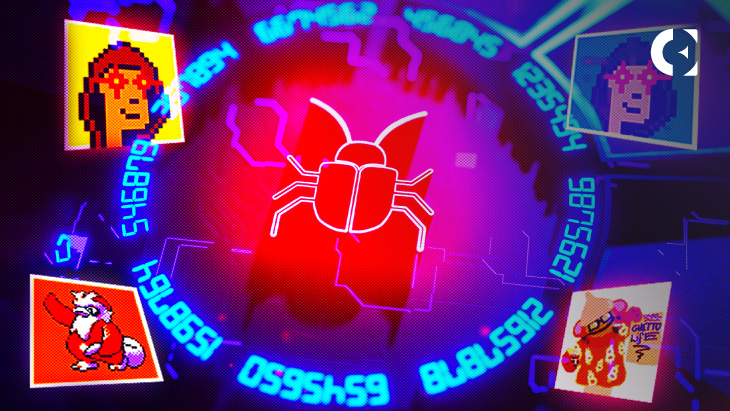- A user recently discovered a bug in the Bitcoin Ordinals program.
- Inscription No. 3492721 has zero input and zero output but is programmable into the number.
- Ordinals’ founder, Casey Rodarmor says the bug can be fixed by implementing an upgrade.
A user recently discovered a bug in the Bitcoin Ordinals program. According to reports, inscription No. 3492721 has zero input and zero output but is programmable into the number. The solution to the bug, as proffered by Ordinals’ founder, Casey Rodarmor, lies in implementing an upgrade. However, the founder noted that upgrading the protocol will affect all programs after 3492721.
The Bitcoin-focused independent freelance software developer, Super Testnet, has released a tool to rectify the issue on the network. Super Tested posted the step-by-step solution on GitHub and referred his Twitter followers to the document. He requested users to follow the installation and usage instructions and provide feedback on their results. However, Super Testnet informed the users that a non-retrievable 10k Sats fee will be involved in the process even if the upgrade doesn’t work.
The solution by Super Testnet involved ten unique steps that users can implement on their own. It also included codes users could easily copy and deploy to run the upgrade. During the upgrade, users will send the irretrievable 10k Sats to a wallet address that will show up in one of the steps, and users will need to lobby miners to mine their transactions before completing the upgrade.
Last month, a bug in the Bitcoin Ordinals protocol excluded approximately 1,200 valid inscriptions from the Bitcoin network. The community discovered the exclusion was due to an indexing flaw that caused the protocol to pick out inscriptions in the first transaction input. As a result, the bug orphaned the affected inscriptions and isolated them from the Bitcoin network.
Ordinal protocol on the Bitcoin network allows users to activate smart contract codes on transactions, enabling them to embed an inscription on each Satoshi. Each inscription is unique and can act as an NFT. Ordinals enabled the creation of such unique NFTs cost-effectively, as they do not require the kind of storage systems seen on Ethereum and other NFT-inclined networks.
Disclaimer: The information presented in this article is for informational and educational purposes only. The article does not constitute financial advice or advice of any kind. Coin Edition is not responsible for any losses incurred as a result of the utilization of content, products, or services mentioned. Readers are advised to exercise caution before taking any action related to the company.









